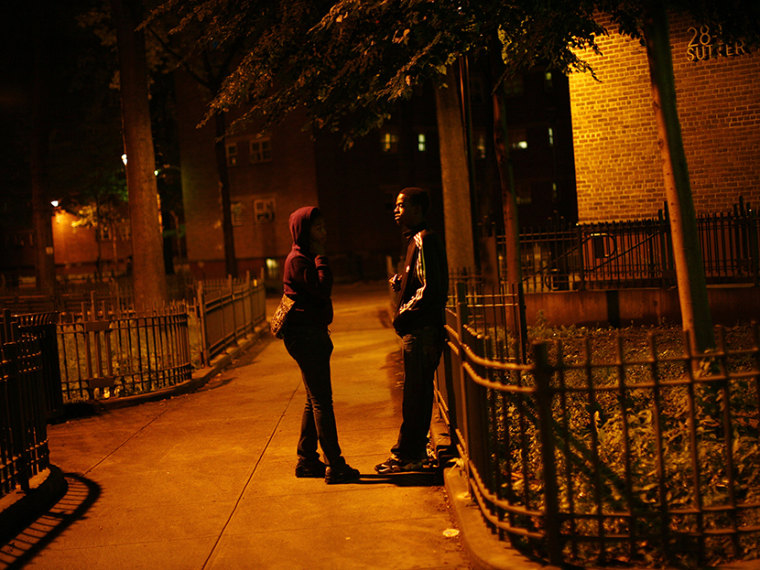New Yorkers presented their grievances to the New York City Housing Authority (NYCHA) at a public forum Wednesday. NYCHA is in charge of low-income housing projects in New York City, serving more than 400,000 residents.
Tenants, protesters, city organizers, and mayoral candidates all gathered near City Hall to speak about the issues plaguing their neighborhoods. Among the complaints: the infill plan that would sell NYCHA land to the highest bidder; the failure to install video cameras, as promised, to increase security; the $75 million annual payment NYCHA pays to the NYPD; and the long list of homeless citizens waiting for shelter.
Rev. Al Sharpton invited some of New York City’s mayoral candidates to spend the night at one of NYCHA’s housing developments, East Harlem’s Lincoln Houses. Bill de Blasio, John Liu, Christine Quinn, Bill Thompson, and Anthony Weiner were in attendance. Quinn, Liu, and Weiner testified at NYCHA's plan forum.
“The apartment I was in, where black mold was infesting the bathroom, shows that more attention and focus needs to be set on maintenance and a better system to manage the request for maintenance needs to be put in place,” Council speaker Quinn said in front of the silent NYCHA board, and amid jeers from forum attendees in the rafters. The criticism, many attendees suggested, stemmed from her lack of action towards improving public housing during her term as council speaker.
“You know what was unusual about my stay? Absolutely nothing,” mayoral hopeful Anthony Weiner said in his brief statement.
Just two days after the five candidates packed their sleeping bags and headed back home, a 23-year-old woman was shot at the complex they slept in.
Forty-two million dollars were allocated for NYCHA security cameras around the city, but one year later, most have yet to be installed, the Daily News reported. One million alone are meant to be dedicated to the Lincoln Housing project, which serves 3,117 residents.
“The shooting that occurred…underscores the urgency for NYCHA to spend the money that the city council has allocated for security cameras. It has sat there unspent,” Quinn added to her testimony.
The number of New Yorkers on the waiting list for a NYCHA residence—270,000—is now larger than the total 178,900 public housing units in the city, as Gothamist pointed out. Five percent of New Yorkers rely on NYCHA for housing, and those who don’t make the cut are often disabled, living in homeless shelters, and have been waiting years for a living space.
"NYCHA must give more than just lip service to its statements, and actively engage in sustained, meaningful collaborations in order to meet its challenges head on," John Liu, New York City Comptroller and mayoral candidate wrote. “These are good people who deserve a place to live,” he added in his panel testimony.
Yet, even those who are fortunate enough to snag a spot in the city's public housing are not guaranteed a quality living facility. Council member Ydanis Rodriguez recounted a story of a tenant who was stuck in a NYCHA elevator “from ten at night to ten in the morning.”
“The tenants have been ignored and neglected,” former New York City Council member and mayoral candidate Sal Albanese commented in the forum.
Mayor Michael Bloomberg did make an effort to add new affordable housing units with his New Housing Marketplace Plan, but the plan failed entire communities in the Bronx, where the “the average household in these community districts does not make enough money to qualify for the vast majority of affordable housing that has been constructed under the New Housing Marketplace in their neighborhood,” according to the Association for Neighborhood and Housing Development.
In order to help fund the capital budget, NYCHA has also proposed an infill plan, which would lease off land NYCHA already owns, turning basketball courts, playgrounds, and parking lots of low-income New Yorkers into luxury apartments. Much of the testimony revolved around the infill plan.
“The last thing we need is more luxury condos,” Albanese added, saying that there’s "a lack of trust between NYCHA and its tenants.”
